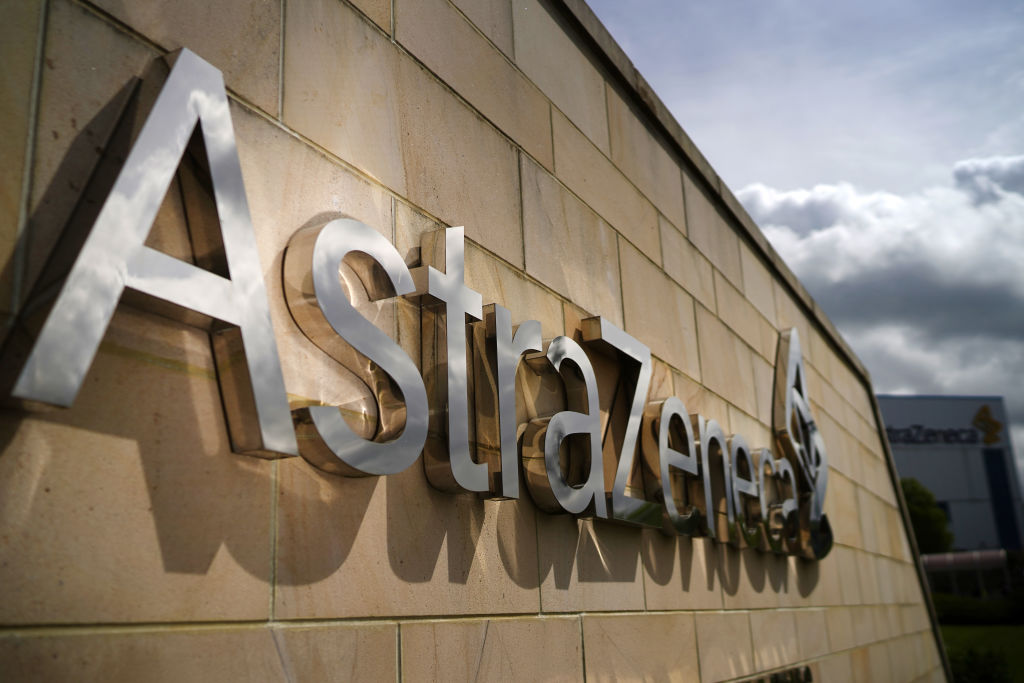

AstraZeneca plunked down $200 million to share in the development of an Ionis Pharmaceuticals drug in late-stage clinical testing for a rare disease affecting the nerves. Preliminary data from a pivotal study are now lending some justification for the 2021 deal, and the partners are planning to file a regulatory submission with the FDA later this year.
The drug, eplontersen, is in Phase 3 testing as a treatment for nerve pain caused by hereditary transthyretin-mediated amyloid (hATTR). This disease stems from misfolded versions of a protein, transthyretin, that accumulate in tissues in the body, including the nerves. The two main goals of the clinical trial were to measure a change in transthyretin concentration in the blood and to evaluate patients according to a scale used to measure neuropathy. On both goals, AstraZeneca and Ionis said Tuesday that their drug led to statistically significant and clinically meaningful changes. The companies did not go into further detail about those changes, but said that data from this interim analysis will be presented at a medical meeting later this year.
These clinical trial results, and the planned regulatory filing, are key for keeping up with Cambridge, Massachusetts-based Alnylam Pharmaceuticals. Last week, that biotech won FDA approval for Amvuttra, its second hATTR therapy. As an injection given every three months, Amvuttra offers patients a dosing edge over Alnylam’s first hATTR drug, Onpattro, which is an infusion given every three weeks. Both are “gene-silencing” drugs that work by using a mechanism called RNA interference to stop a gene from producing a disease-causing protein. Onpattro accounted for $474.7 million in sales last year, according to Alnylam’s financial reports.
Like Alnylam, Ionis also aims to stop transthyretin production. But the Carlsbad, California-based biotech’s approach employs antisense oligonucleotides, which are short, synthetic chains of nucleotides designed to target a gene of interest. Ionis’s eplontersen, given by injection, is intended for once-monthly dosing. The drug comes from the company’s Ligand-Conjugated Antisense (LICA) technology platform.
Last December, AstraZeneca and Ionis announced a partnership in which the two companies would share in the development and potential commercialization of eplontersen in the U.S. The pharma giant also gained the right to commercialize the therapy in the rest of the world, except for certain countries in Latin America. In addition to the $200 million upfront payment, Ionis could earn up to $485 million in development and approval milestone payments and up to $2.9 billion in sales-related milestone payments.
Ionis already has a piece of the hATTR market. Tegsedi, an Ionis antisense drug that won FDA approval in 2018, is now sold in much of the world under an agreement with Swedish company Sobi. But Tegsedi is given as a once-weekly injection. Eplontersen’s Phase 3 test is an open-label study that is comparing that drug to the historical placebo arm from Tegsedi’s pivotal study in 2017. The preliminary results announced Tuesday are from an interim analysis at week 35. The final analysis of the primary endpoints will be done at week 66. All patients will be followed until week 85, at which point study participants have the option to move into an open-label extension study.
In a research note sent to investors Tuesday, William Blair analyst Myles Minter wrote that the preliminary results are a positive sign for Ionis’s ability to compete in ATTR but it’s hard to assess just how competitive eplontersen is to Alnylam’s drug without full data. Nonetheless, the latest results showed no concerning adverse effects and Ionis management told Minter that eplontersen’s safety profile is similar to that of the same dose used in Phase 1 testing, which showed no kidney or cardiovascular problems—risks that are flagged in a boxed warning on Tegsedi’s drug label.
“We see this as a clear win over Tegsedi and bodes well for the safety profile of the broader LICA platform,” Minter said in the note.
Treating nerve pain is just one of the competitive fronts for the drugs. When ATTR affects the heart, it can lead to progressive heart failure and death within four years of diagnosis, according to Ionis and AstraZeneca. Alnylam is testing its gene-silencing approach in cardiomyopathy. The Ionis/AstraZeneca Phase 3 test of eplontersen in cardiomyopathy is ongoing.
In cardiomyopathy caused by hATTR, Ionis/AstraZeneca and Alnylam would compete against Vyndaqel, a small molecule drug from Pfizer that’s designed to stabilize transthyretin. That drug accounted for more than $2 billion in sales last year, according to Pfizer’s financial reports. BridgeBio Pharma is also aiming to offer patients an alternative treatment. But late last year, an interim analysis of that biotech’s drug, acoramidis, failed the main goal of its Phase 3 test measured at 12 months of treatment. The 30-month study was fully funded, so BridgeBio is continuing it in hopes of achieving better results. Preliminary data at 30 months are expected in mid-2023.
Photo: Christopher Furlong, Getty Images


















